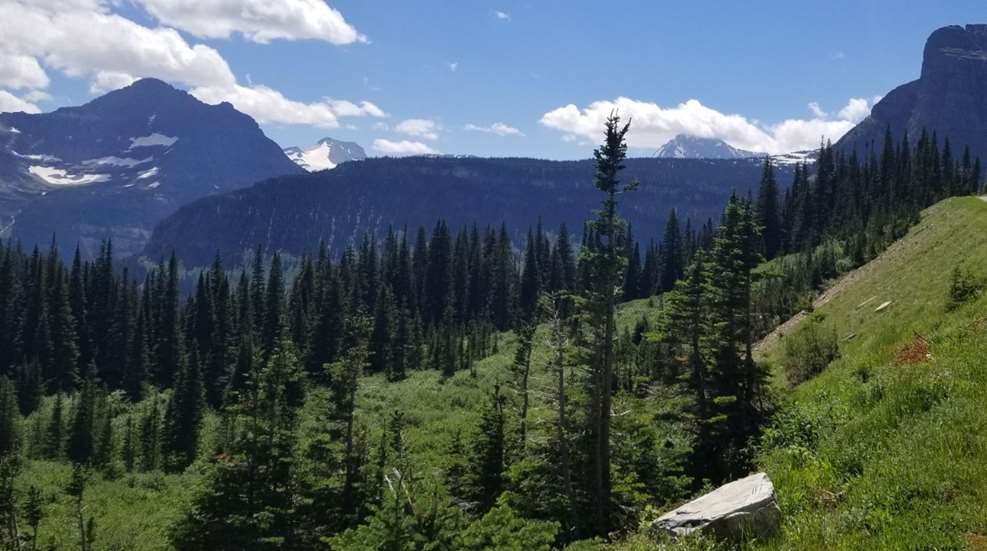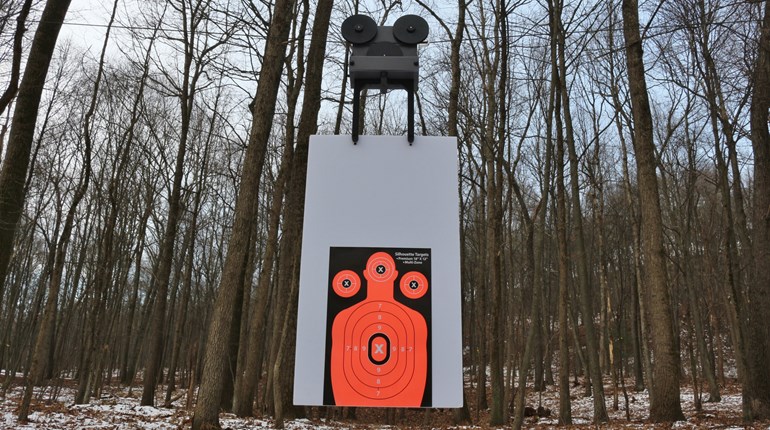
It’s overwhelming trying to figure out your first few steps when embarking on a hunting journey in a new state. After 24 years of living and growing up hunting only in Wisconsin, I moved to Montana without knowing anyone or having any connections to this new hunting culture or land.
According to Forbes, Montana is one of the best states in America to hunt. But I didn’t have my dad or my uncles here to take me out, show me the land, describe the game animals' behavior or provide all the other tips and tricks you pick up from following other successful hunters around. It was as if I had this whole gold mine ready to harvest great new hunting memories, but I felt alone and overwhelmed with everything I didn’t know. Where do I start to “relearn” hunting here?
Well, most hunting comes down to four things: Being safe, following the rules, going in with knowledge of animals and land, and having fun. Most of the learning starts by making a few decisions and breaking down those four things. No matter where you’re hunting for the first time, here are a few pointers:
Species and Season
In the most basic of starting points, you have to first determine or choose what you want to hunt and during what season, as some species have multiple seasons in a year. This decision can be weighed against your preference, your prior experience, your budget, your gear and firearms or bows you already own or can afford at the time. The game you enjoy eating is also a factor.
Rules
Like everything in life, you have to know the rules before you “break them.” In hunting’s case, we don’t want to break them, but we have to know how to strategize within them and still be successful. If you’ve hunted before, you already know how important it is to stay up-to-date each year because things do change. States and regions have specific and unique limits on where, when and how you can hunt. Pick up a free hunting regulations booklet at gas stations and outdoor retailers, or look them up online and take notes. Be sure to read the fine print (honestly, you might need your glasses), and make sure you’re reading the most up-to-date regulations. If you still can’t determine the regulatory language yourself, call up a wildlife or game authority office and ask directly over the phone.
Hunting Buddies
Sometimes hobbies are better with friends. In my case, I have always gone hunting with a relative. Maybe you’ll be hunting with friends or family you’re traveling with to a different state (lucky you!). But if you’re moving to a new state like I did and don’t know anyone, start joining local hunting groups and pages on Facebook, go to the local shooting range, or take shooting or hunting classes. You’ll meet likeminded individuals there. In my case I actually met a gal and her fiance on an online meet-up app and we will be hunting together this fall in my new state. You never know where you’ll find your next hunting buddy, but keep an open mind. It’ll make the experience even more fun (and safer).
Licenses and Tags
You know the rules, you’ve made your choice on a type of hunt, and you’ve got your friends to go with. Now you need to get serious with the paperwork—this is where that hunting regulations booklet will come in handy again. Read up on if and when you need to apply for tags or lotteries ahead of time online, or if you can just buy over-the-counter. Also watch out for non-resident fees if you are not considered a resident of the state yet. Lots of states are also using government-owned apps to let hunters display a tag digitally at time of harvest instead of a paper tag. Make sure you know which type to have on hand where you’ll be hunting (but honestly a paper tag is the safest bet as long as you can keep it clean and readable).
Land and Scouting
This next part is the most overwhelming of them all when trying to hunt in a new state. I am the most paralyzed by this endeavor: Learning the land and scouting out where I can hunt (and the best places to hunt). Some apps have made it easy on hunters to know what’s public and what’s private land and where the boundaries lie, but not all of those are free. You can also go old-school and pick up a land parcel map at an outdoor retailer or maybe a forestry or wildlife government office. In addition to noting what’s public and what’s private, you’ll also have to keep in mind where your tag allows you to hunt (referenced as “zones,” “regions,” etc.), and what you can undertake physically. Will you have to pack out whatever you harvest for miles? Can you drive ATVs on the land? And of course, if you’ll be hunting private, ask the landowners if you have permission and be very explicit about who will be hunting with you, what you’ll be hunting and when. Always be respectful.
Outerwear and Gear
If the area you’ll be hunting has different terrain than what you’re used to hunting, it may be time for some new gear. Will you be needing different camouflage patterns in your clothing? Boots that are waterproof? Waders? A high-powered scope? The hard part is sometimes you don’t know what you don’t know. Ask around on social media groups, do your own research by reading outdoor magazines for the area, and make sure your gear is up-to-snuff on the regulations, too. And while you’re at it, test out all your new gear. Go for a hike in it. Shoot the new firearms and/or archery equipment (especially if you’re not familiar—go with someone who has a lot of experience).
Schedule
Once you’re ready to hit the fields, slopes, swamps or wherever you’ll be hunting for the first time, your schedule is probably going to be pretty intense. You may want to log some longer hours and even days to get a genuine feel for the land and the animal behavior. This way you become a student of your environment. It’s the best way to learn. It will probably require some decent time off work, or if your locale allows it, being out there every weekend you’re hunting that season.
Hunt!
A successful hunt comes down to four things, remember? Being safe, following the rules, going in with knowledge of animals and land, and having fun. Welcome to the “having fun” part (although, the entire journey of relearning to hunt is fun, too!). You’ve made it! You overcame a bunch of hurdles to be ready for an awesome experience in a brand new place. I have yet to have a successful hunt in my new backyard, but I remind myself that the journey is all worth it to be out there and keeps me on my toes.















































